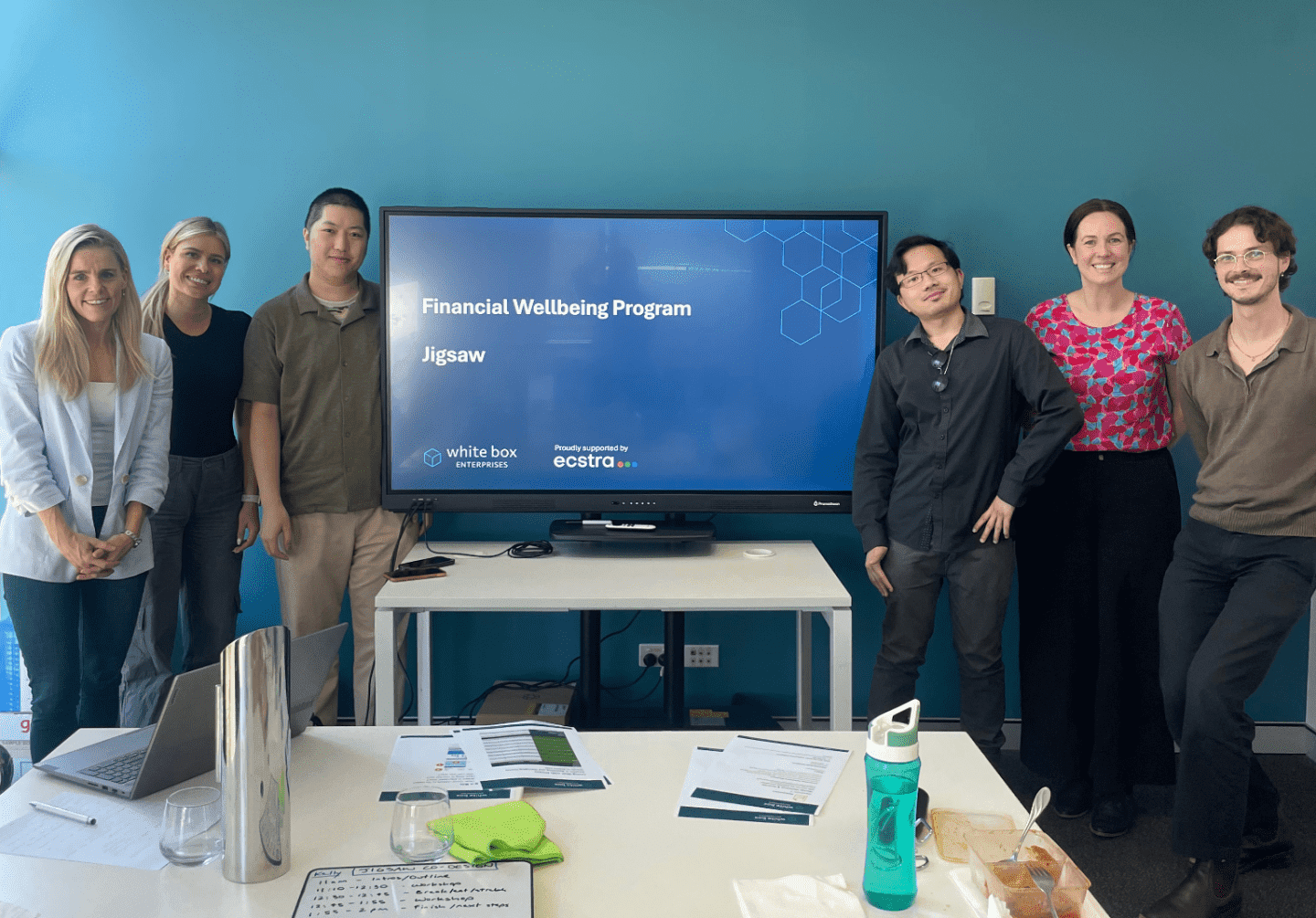For many employees in jobs-focused social enterprises, managing money can be a new and often overwhelming experience. But thanks to White Box Enterprises’ Financial Wellbeing Program, more people are gaining the confidence and skills to take control of their finances.
Now in its second year, the bespoke program—funded by Ecstra Foundation—is delivering measurable impact by helping social enterprises embed financial education into their support models. The goal is to equip employees with the confidence, skills, and behaviours needed to better manage their money.
We know from the Year 2 evaluation of the Payment By Outcomes trial that financial wellbeing is a crucial part of wraparound supports.
A Year Two evaluation by Centre for Social Impact (CSI) Swinburne has found the program—created specifically for, and with, jobs-focused social enterprises—continues to generate significant benefits for both social enterprises and their employees.
Some social enterprises reported that the training had even helped them identify and support employees with personal financial challenges they hadn’t previously been aware of.
Employees, some of whom are learning about money management for the first time, are seeing immediate benefits, from understanding their credit scores to taking control of their bills.
Case Study: Chris’ Story
Chris, 28, has been working with Joii’s landscaping and fencing social enterprise in Queensland for about two years. Before participating in the Financial Wellbeing Program, Chris had never completed a tax return and didn’t understand the importance of doing so.
“The part of the course I found most useful was probably the tax part. That just drilled in my head more than anything,” Chris said.
“Also, doing your credit score. That actually helped out too because I found out what my credit score was and I could go and do a couple of things with it.”
Since completing the training, Chris successfully lodged his first-ever tax return through myGov and was surprised to receive a refund, which he used to buy a second-hand car.
Reflecting on the course he said: “It was a good process. The lady who came out was very lively and interactive. I would recommend it.”
Joii’s Social Impact Enterprise Manager, Matthew Cairns, has seen firsthand how the program is shifting employees’ financial confidence.
“Since receiving financial training, I have noticed that participants have gained a better understanding of their finances and are making efforts to avoid living week to week. Some of them have even managed to save for a car,” he said.
Expanding reach and impact
The Year Two evaluation by CSI Swinburne found that the program met all its goals for social enterprises, including integrating with existing support; personalisation; and capability and skills.
The training empowered social enterprise staff with greater confidence and readiness to deliver financial wellbeing education.
Beyond these goals, the program has led to several unexpected positive outcomes:
- Some social enterprises were able to identify and support employees with personal challenges they hadn’t been aware of before.
- The program encouraged some social enterprises to include employees with lived experience in their program design and implementation in the future.
- White Box worked with Ability Works to co-create an Accessibility Toolkit, ensuring the program is inclusive for all employees.

For employees who participated in the training:
- 96% said their confidence to manage money improved.
- 100% found the training useful and understandable.
- 96% said they gained many new learnings.
- 96% said the training provided clear and relevant examples.
White Box Enterprises National Program Manager Kelly Taylor, who co-designed and is delivering the program, said the growing success of the program demonstrates the importance of embedding financial education within employment-based social enterprises.
“Financial literacy is a crucial life skill, and we’re seeing firsthand the impact of this program on individuals who may have never had access to financial education before,” Kelly said.
“We’re grateful for the continued support of Ecstra Foundation in helping jobs-focused social enterprises provide this vital training to employees when they need it most.”
Caroline Stewart, CEO of Ecstra, highlighted the immediate and long-term positive outcomes of the program.
“White Box’s best practice approach integrates financial wellbeing into a holistic employee support structure,” she said.
“Our multi-year partnership aims to share a model that should benefit a range of employers and employees. By sharing their evaluation results and insights, White Box is helping other employers gain the confidence to adopt financial education as their wider work.”
With the program continuing into its third year, White Box is looking at ways to expand its reach to even more jobs-focused social enterprises across Australia, ensuring more employees can build financial confidence and stability for the future.

